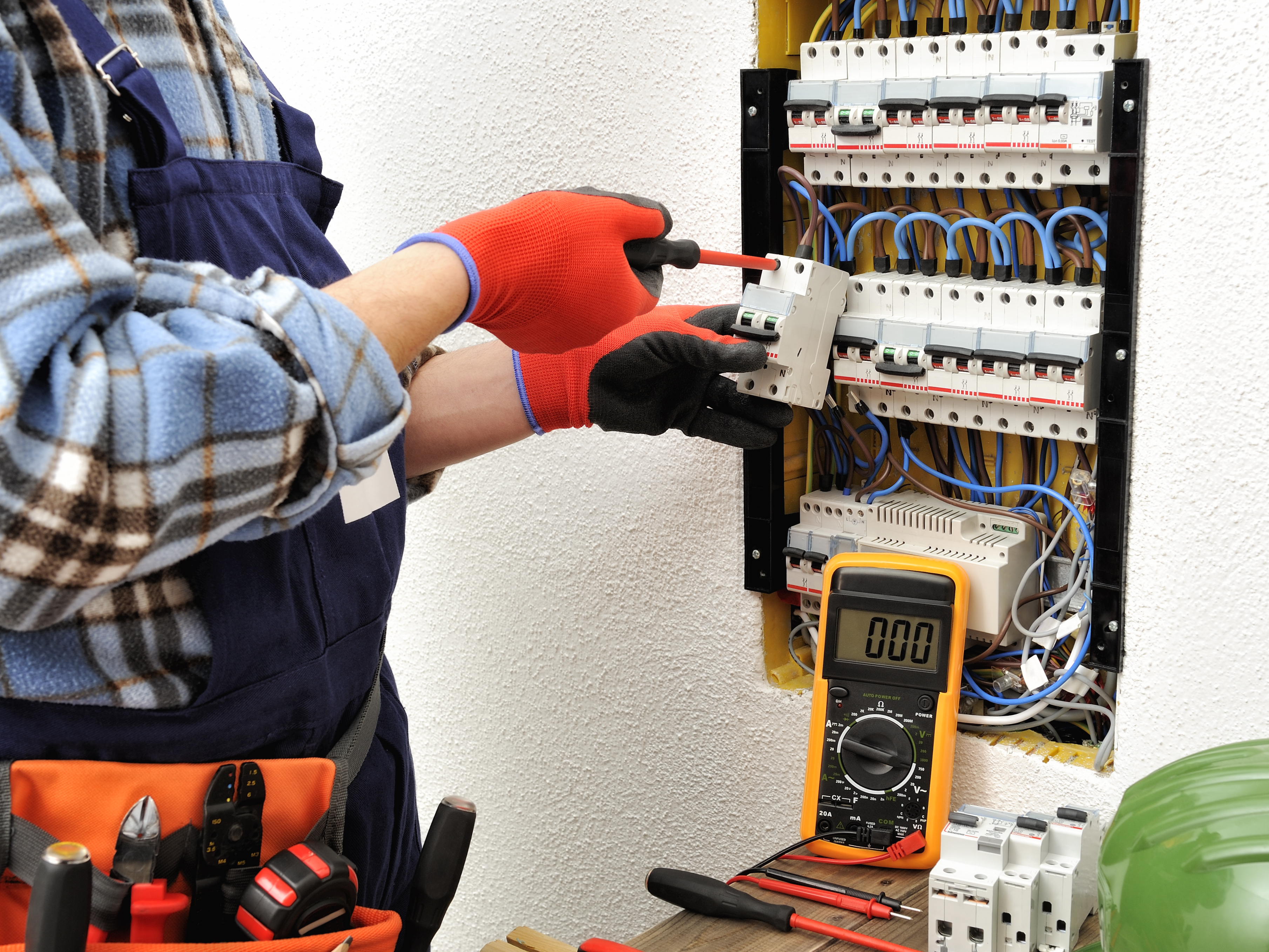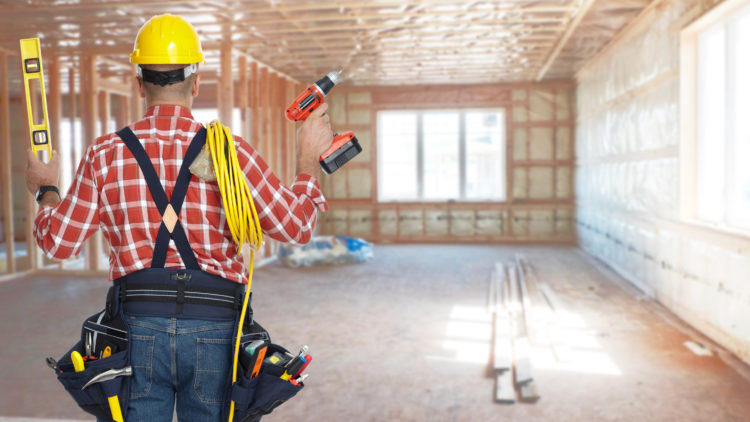Why Hiring Experienced Industrial Electrical Contractors is Vital for Your Facility's Success
Why Hiring Experienced Industrial Electrical Contractors is Vital for Your Facility's Success
Blog Article
The Thorough Duty of Industrial Electricians in Ensuring Reliable Power Circulation and Electrical Upkeep in Industrial Setup
The function of commercial electricians expands far past fundamental electric jobs; they are important to the stability and performance of commercial operations. Recognizing exactly how their competence not only safeguards functional continuity yet additionally contributes to sustainability efforts raises important inquiries concerning the future landscape of electric maintenance in industrial setups.
Value of Industrial Electricians
In lots of industrial settings, the function of electricians can not be overemphasized. These experts are essential to the operation and maintenance of electric systems, ensuring that power distribution is efficient and reputable. Their know-how not just sustains the daily performance of making procedures but also plays a vital role in enhancing total work environment safety and security. Industrial electricians possess specialized knowledge of complex electric systems, consisting of high-voltage devices and automated machinery, which are necessary for modern industrial operations.
Moreover, the demand for skilled electrical contractors remains to grow, driven by developments in innovation and enhanced reliance on automated systems. As markets advance, the need for electrical contractors who can install, fix, and maintain sophisticated electrical infrastructure becomes vital. Their payments extend past mere setup; they are principals in ensuring compliance with safety and security laws and sector criteria, thereby minimizing dangers linked with electrical failures.
Secret Obligations and Duties
Industrial electrical contractors often participate in a range of vital duties that are vital to the smooth operation of power circulation systems. Among their key duties consists of mounting, keeping, and fixing electrical circuitry and devices in commercial setups. This includes making certain that electric systems abide by safety guidelines and sector criteria to prevent risks such as electrical fires or tools failing.
Along with installation jobs, industrial electrical experts are accountable for repairing and diagnosing electrical problems. They utilize specialized techniques and tools to recognize mistakes in machinery and power circulation networks, making certain that any type of malfunctions are immediately addressed to decrease downtime. licensed electrical contractor. Regular maintenance is an additional crucial aspect of their duty, where they do routine inspections and precautionary actions to maintain systems operating efficiently

Certifications and skills Needed
Effectiveness in electrical systems is crucial for commercial electricians, as it allows them to efficiently navigate the complexities of power circulation (bre automation). A solid foundation in electric concept, consisting of understanding of circuits, voltage, existing, and resistance, is important. Industrial electricians must have a detailed understanding of electric codes and guidelines to make sure compliance with market requirements
Along with technical knowledge, useful abilities are critical. Effectiveness in troubleshooting and analytical enables electricians to detect and fix problems successfully, decreasing downtime in industrial operations. Knowledge with numerous tools and equipment, such as multimeters, oscilloscopes, and power analyzers, is also essential for effective upkeep and repair.
In addition, industrial electricians are frequently required to have official education, generally finishing in an associate level or conclusion of an apprenticeship program. These programs provide hands-on training and theoretical knowledge, equipping electrical experts with the skills required for the area.
Qualifications, such as those from the National Institute for Certification in Design Technologies (NICET), can better improve an electrician's credentials, demonstrating knowledge and dedication to the profession. Overall, a mix of education and learning, practical experience, and technical abilities is crucial for success in this requiring role.
Safety Requirements and Conformity
Compliance with safety and security requirements is a fundamental element of the industrial electrician's function in power circulation. Industrial electrical contractors are charged with sticking to a multitude of guidelines and guidelines developed by organizations such as the National Electric Code (NEC) and Occupational Safety And Security and Health And Wellness Administration (OSHA) These requirements ensure not just the risk-free operation of electric systems yet additionally the security of employees and devices.
To achieve conformity, electricians should perform routine inspections and upkeep of electric systems, identifying prospective risks and executing rehabilitative measures. This includes correct grounding, circuit defense, and the usage of ideal individual protective tools (PPE) By keeping an extensive understanding of both regional and nationwide codes, electricians can efficiently mitigate risks linked with electrical job.
In addition, commercial electricians play an important role in training personnel on safety practices and emergency situation treatments. This education promotes a culture of safety within the work environment, reducing the possibility of accidents and ensuring that all employees know their responsibilities pertaining to electrical security.

Future Trends in Electric Maintenance
As technology remains to advance, the future of electrical upkeep in power circulation is increasingly defined by the integration of wise systems and anticipating analytics. These advancements make it possible for commercial electrical contractors to relocate beyond standard reactive upkeep approaches, fostering a proactive method that enhances system integrity and efficiency.
One substantial fad is the adoption of Web of Points (IoT) devices, which facilitate real-time tracking of electrical systems. This modern technology permits the collection of substantial quantities of data, giving understandings into devices performance and potential failure factors. By leveraging anticipating analytics, electrical experts can anticipate issues before they rise, lowering downtime and maintenance expenses.
Additionally, the implementation of sophisticated automation innovations is transforming electrical upkeep. Automated diagnostic devices can promptly identify faults and suggest restorative activities, improving the repair work process. This not just enhances action times but also decreases human mistake.
In addition, the growing focus on sustainability is driving the growth of energy-efficient remedies and renewable resource integration. As commercial fields increasingly adopt greener methods, electrical contractors will certainly play a pivotal role in keeping these systems, making sure that power circulation aligns with environmental criteria. In general, the future of electric upkeep promises boosted sustainability, performance, and integrity.
Final Thought
In conclusion, commercial electrical experts are crucial to the capability and safety and security of industrial environments. The duty of commercial electrical contractors will certainly licensed electrical contractor continue to increase in importance.
The duty of commercial electrical contractors extends far beyond fundamental electric jobs; they are integral to the stability and performance of commercial operations (industrial electrical companies). Industrial electrical experts have specialized expertise of complicated electric systems, including high-voltage equipment and automated machinery, which are important for modern industrial operations
Additionally, industrial electrical contractors collaborate with engineers and various other specialists to create and carry out reliable electric systems tailored to certain commercial demands.Proficiency in electric systems is important for industrial electricians, as it allows them to properly navigate the complexities of power circulation.In verdict, industrial electricians are essential to the functionality and security of industrial environments.
Report this page